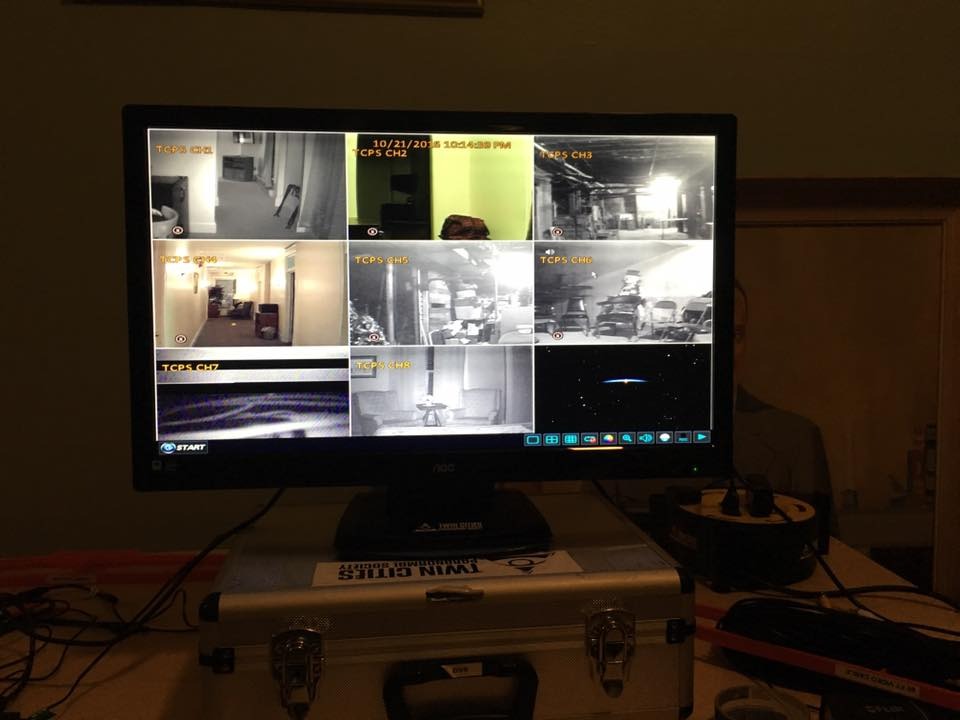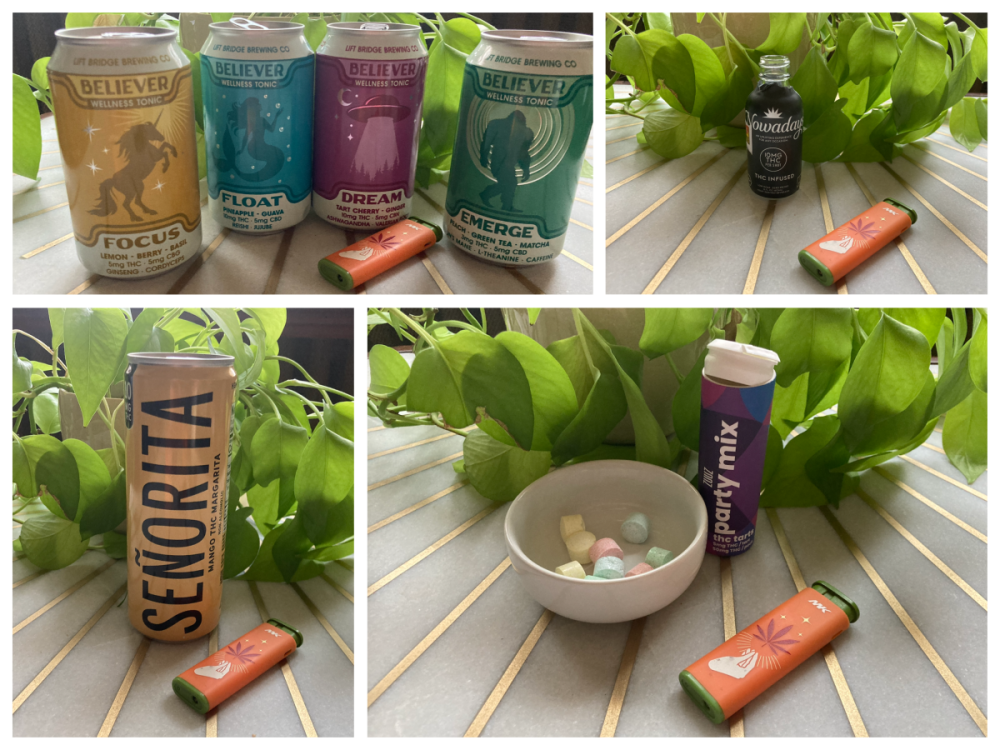They don’t rock proton packs, drive Ectomobiles, or battle with wormy EPA bureaucrats. But the Twin Cities Paranormal Society might be the closest thing we’ve got to local Ghostbusters. (Except, of course, for Burnsville’s Ernie Hudson.)
Formed in 2006, the nonprofit group now boasts 11 members who investigate all things ghostly throughout Minnesota for homeowners and businesses who suspect hauntings. They’ve visited Black Forest Inn in Minneapolis, the Hubbell House Restaurant in Mantorville, and the S.S. William A. Irvin in Duluth (whose haunted bona fides have been verified by a Racket contributor), among many other spooky locales.
In honor of the calendar’s most frightful date, Twin Cities Paranormal Society co-lead Dawn McClain chatted with us about her group’s history with the supernatural.
Tell me more about your group.
We are a scientific team, meaning we don't really use mediums or psychics. We respect what they do, but it's not what we do. We use basically instruments that have been made for the paranormal to measure results. If people think that their place is haunted, we go into homes and businesses to use our equipment to give them data, basically.
What exactly are you testing for?
EMF, electro magnetic fields, those can be disrupted by a spirit being present. If you have high EMF leaking in your house from an old electrical box, that can cause levels to spike and even cause people to have hallucinations. So we check for those kinds of things first. They might think that, like, their bedroom is haunted, but if we test and find EMF is consistently off the charts, we'll be like, "You need an electrician.” Temperature fluctuations recorded by FLIR cameras, our instruments measure all kinds of things.
It looks like membership applications are closed at the moment. How do you typically recruit new members?
We go in with a heavy degree of skepticism. First, just to make sure that it's not paranormal before it's paranormal. We require people to have a critical mind. Second, we always like people who have experience in different areas like photography for instance. People who have a lot of time to watch a long hallway and nothing is happening—we record so much. It's about letting people know what's going on in their house, to quell their fears or let them know what to do next. And we don't have, like, a big, red stamp that says "HAUNTED," we're never going to put that up.
Generally, do you guys operate from a place of “ghosts are real”? Personally, I feel like that perspective is more fun and pretty harmless.
I wouldn't say that. We have varying degrees of skeptics on our team. We had one guy who went seven years without getting any evidence, and he joined the group because he's a children's book author who writes spooky stories for kids. He just kinda got hooked on it.
Take me through some of the most chilling places you’ve investigated over the years.
Sure! The Soap Factory, which no longer is open for their Haunted Basement event... it's now a spa [laughs]. We've probably found our most disturbing clips from The Soap Factory. The audio recordings we have are pretty scary; we feel like it's a residual haunting there. We have a woman screaming out for help that's pretty chilling. We have a really aggressive male voice saying, "GET OUT OF HERE." None of this we hear on our recorders at the time, but you listen back and hear these things. People ask, "Is it scary to go into these places?" Because we go to haunted prisons, old tuberculosis hospitals for fun. And it's not really scary in the moment, though it can be creepy. It's scarier when you get home, you're alone listening to your audio, and something whispers your name or screams for help.
What are some other places?
Well, every year we investigate and do an event at The Lexington in St. Paul. I mean, we get so much stuff there it's almost overwhelming. They have an old room called The Antique Room downstairs. It has a lot of the old paintings and chandeliers from the old days of the restaurant. We get a lot of voices everywhere—stuff like "GET OUT" and "They're coming..." Then there are friendly voices, like kids laughing. They like to communicate through the lights a lot; we have a voice saying "I used to be the cook." The Lexington is interesting because people used to have their wakes there. A lot of bodies came in and out of the restaurant, believe it or not.
Outside of that, you've got the Anderson House Hotel in Wabasha, right off the Mississippi River. That gets a lot of activity. Being on the river, it's one of the oldest continuously running hotels. You'll get boat captains coming through, travelers. And they're intelligent, these are not residual hauntings.
And what exactly is a residual haunting?
Think of, like, an old plantation, where people see the same woman going by on the porch at the same time every night. It's almost just an imprint of a situation, but they really can't communicate with you. The Soap Factory? Those voices, we feel they're just an imprint of a terrible situation that happened; you can't say "How can I help you?" and they'll answer back. Most of the things at The Lexington will reply. It's like they're actively hanging out and watching over the workers.
And the place in Wabasha is like that?
Oh yeah, they'll reply to you there. Also the Grant House Hotel in Rush City. A lot of these old hotels... Go to any small town, find the oldest hotel, and it's probably haunted.
What is it about old, rural hotels?
There have been a lot of fires, things like that. I mean, back in the day, whenever people went through old towns by railroad... it just had a lot of activity. And railroad tracks, just because of the energy of the train, that kinda sparks things. Water, too. So those places are hotbeds of paranormal activity.
So, take me through the range of emotions and motivations you encounter from ghosts. Can they be mean? Nice? Funny? Are they always trying to scare people?
That's a really good question. I think a lot of them are stuck, they don't know how to leave. They missed their opportunity to go to the light—or whatever is on the other side. Some are just mad. We find this a lot in homes. If they're wanting attention because they used to live there, and they're just not happy someone else is in their house. Then you have ones who maybe did bad things in life, and they're afraid to move on. We've had, ya know, so-called conversations with spirits who talked about the bad things they've done, and they're afraid they're going to go to what they think is hell. They're sort of afraid.
And then there's just like... if people are cranky in life, and they're mean, they're gonna be that way as a ghost. People jump to all this demon stuff—we don't touch that with a 10-foot pole. If we find something that has characteristics of demonic stuff—which is super, super rare—we refer that to other groups who deal with that kind of stuff. But most of the time, when people are just afraid because it seems aggressive... I mean, old cranky people became old cranky ghosts! Cranky, mean, whatever. And some of them become attached to people, and follow them around.
But there are, like funny and friendly ghosts too?
Oh totally, yes! Some of 'em just want to joke around, light things up, they get happy. A lot of times we'll get voices through our recorders, when we're laughing, of laughter that isn't us. It seems like they're playful at times; it's not always the doom 'n' gloom people think. They like to play the piano, they'll play old music. It can be pretty fun! They can just be hanging out because they still want to drink. Some mediums and psychics will find whole rooms of flappers drinking, in a place that used to be a bar. It's like, OK, I can see they want to continue the party.
You mentioned you don’t throw up a “HAUNTED” plaque on places that show paranormal activity. So what are the remediation options for your clients, the next steps?
OK, so this is where it's not very scientific. We'll ask them, "Are you OK with these spirits being here? This is the evidence we got..." And if they want a space clearing, then I will do that for them. I'm not magic or anything; I have no powers. It's something anyone can do—a combination of old and new-age practices. We have a Native American ritual that one of our members, who's Indigenous, he'll work that in. Christianity, we'll say some prayers.
We have a pretty good success rate, although we always tell people we cannot make them leave. I don't have the ability or power to send them to the light. Sometimes you just have to ask them, "Hey, we know you used to live here, but these people live here now, can you please not bang the kitchen cabinets open and closed? Can you please them alone?” We want to honor and acknowledge that you lived, but can you peacefully live with this family and not cause a ruckus? It's amazing, just asking them to calm down. It can be the solution.
How has your understanding of the paranormal evolved over the years?
I was with another team when I lived in another state, and we had a lot of fun doing it. It was more recreational stuff, like renting out an old hospital for the night. But this team, in particular, it's nonprofit and we all have background checks. It's really to help people, so the focus is not thrill-seeking. It's about helping the public figure out what's going on.
Anything our readers should know about ghosts this Halloween?
I would say don't be scared. They could just be trying to get your attention—it could just be a friendly ghost! And, you know, places are haunted all year round, not just October!






